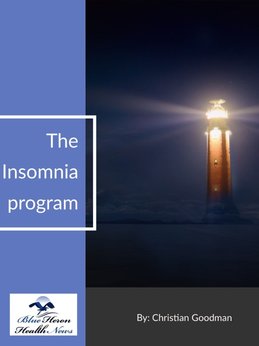
The Insomnia Program™ By Christian Goodman This program has been created by Christian Goodman, a natural health expert and sufferer of insomnia. He has used an audio program to let your fall sleep with the help of a bit of a hypnotic effect on your body.
What role does depression play in insomnia?
Depression plays a significant role in the development and persistence of insomnia. The relationship between depression and insomnia is complex and bidirectional, meaning that each can contribute to the onset and worsening of the other. Here’s how depression impacts sleep:
1. Difficulty Falling Asleep (Sleep Onset Insomnia)
- Negative Thoughts and Rumination: Individuals with depression often experience negative thoughts and rumination, particularly at night. This mental activity can make it difficult to relax and fall asleep, leading to prolonged sleep onset latency (FIU News) (Labiotech.eu).
- Hopelessness and Worry: Feelings of hopelessness, common in depression, can lead to worry and anxiety about the future, which further disrupts the ability to fall asleep.
2. Frequent Nighttime Awakenings
- Disrupted Sleep Architecture: Depression can disrupt the normal architecture of sleep, leading to more light sleep and less restorative deep sleep. This disruption can cause individuals to wake up frequently during the night, resulting in fragmented sleep (Med Xpress).
- Early Morning Awakening (Sleep Maintenance Insomnia): Many people with depression experience early morning awakenings, where they wake up much earlier than desired and are unable to return to sleep. This symptom is particularly associated with major depressive disorder and can exacerbate feelings of fatigue and low mood throughout the day (FIU News).
3. Reduced Sleep Quality
- Decreased REM Sleep: Depression often alters the amount of REM (Rapid Eye Movement) sleep, which is crucial for emotional regulation and memory consolidation. Individuals with depression may enter REM sleep more quickly, but the quality of this sleep is often poor, leading to a less restful night (Labiotech.eu).
- Non-Restorative Sleep: Even if individuals with depression manage to sleep for an adequate number of hours, they may still feel unrefreshed in the morning. This non-restorative sleep is linked to both the psychological and physiological symptoms of depression.
4. Chronic Insomnia
- Insomnia as a Symptom of Depression: Insomnia is a common symptom of depression, and it can sometimes be the first sign that something is wrong. The chronic nature of insomnia in depression can lead to a cycle where lack of sleep worsens depressive symptoms, which in turn makes it harder to sleep (Med Xpress).
- Insomnia as a Predictor of Depression: Insomnia not only accompanies depression but can also be a predictor of the onset of depressive episodes. Individuals who struggle with chronic insomnia are at a higher risk of developing depression, as the lack of sleep affects mood regulation and stress resilience (FIU News).
5. Daytime Consequences
- Fatigue and Low Energy: The lack of quality sleep contributes to the pervasive fatigue and low energy levels seen in depression. This can affect daily functioning, reduce motivation, and exacerbate the symptoms of depression (Labiotech.eu).
- Cognitive Impairment: Poor sleep due to depression can lead to difficulties with concentration, memory, and decision-making, further impacting the individual’s ability to manage daily tasks and maintain relationships (Med Xpress).
Conclusion
Depression significantly impacts sleep patterns, leading to difficulty falling asleep, frequent awakenings, reduced sleep quality, and chronic insomnia. These sleep disturbances, in turn, can exacerbate depressive symptoms, creating a vicious cycle that is challenging to break. Effective treatment of depression often requires addressing both the psychological aspects of the disorder and the sleep disturbances that accompany it. Therapy, medications, and lifestyle changes can help improve both mood and sleep quality.

The Insomnia Program™ By Christian Goodman This program has been created by Christian Goodman, a natural health expert and sufferer of insomnia. He has used an audio program to let your fall sleep with the help of a bit of a hypnotic effect on your body.